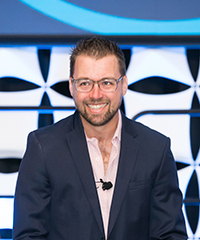 Andrew (Baz) Barrett is a health and safety professional by training who has become ‘reformed’ in many ways. He recognised the need to create sustainable change in safety and that better individual, team and organisational learning leads to better results. This led to the creation of Safety on Tap - a change leadership company specialising in the development and growth of health and safety leaders, and more broadly, capability and innovation in the health and safety field. Safety on Tap supports large organisations across many industries to improve the safety of work, reduce safety clutter, and improve learning and operational performance. Andrew is a specialist professional coach for health and safety professionals.
Andrew (Baz) Barrett is a health and safety professional by training who has become ‘reformed’ in many ways. He recognised the need to create sustainable change in safety and that better individual, team and organisational learning leads to better results. This led to the creation of Safety on Tap - a change leadership company specialising in the development and growth of health and safety leaders, and more broadly, capability and innovation in the health and safety field. Safety on Tap supports large organisations across many industries to improve the safety of work, reduce safety clutter, and improve learning and operational performance. Andrew is a specialist professional coach for health and safety professionals.
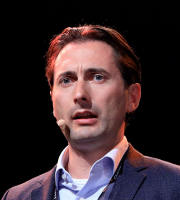 Dr Mark van Rijmenam, CSP, is a visionary strategic futurist who enlightens organisations on the transformative power, opportunities, and risks of AI, the metaverse, and other cutting-edge technologies. As a renowned international speaker, a Global Speaking Fellow and a 5-time author, he captivates audiences worldwide.
Dr Mark van Rijmenam, CSP, is a visionary strategic futurist who enlightens organisations on the transformative power, opportunities, and risks of AI, the metaverse, and other cutting-edge technologies. As a renowned international speaker, a Global Speaking Fellow and a 5-time author, he captivates audiences worldwide.
Join Dr. Mark van Rijmenam, a leading expert in digital innovation, as he explores real-world case studies where AI has been implemented to improve workplace H&S. He will also discuss strategies for integrating AI into your existing H&S protocols and provide insights on how to future-proof your organization in an era of AI-driven digital transformation. Whether you're an H&S professional seeking innovative approaches to safety management or a business leader aiming to understand the changing landscape of workplace safety, this keynote is a must-attend. Prepare to discover how AI is shaping the future of workplace health and safety and learn how to harness its power for your organization's benefit.
As we step into the future, the convergence of artificial intelligence (AI) and workplace health and safety (H&S) is no longer a matter of 'if' but 'when'. This keynote presentation delves into the intricate relationship between AI and workplace H&S, highlighting how AI can revolutionize safety measures, risk management, and accident prevention. From automating repetitive safety checks to predictive modelling for potential hazards, AI holds the promise of significantly improving workplace safety while also increasing efficiency. However, leveraging AI's full potential requires a thorough understanding of its applications, challenges, and ethical considerations.
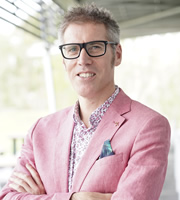
Systems thinking is a currently popular philosophy within safety science that is applied to understand and enhance occupational health and safety. In this presentation Paul reflects on over twenty years of applied safety research and discusses ten critical lessons learned about safety and how complex systems fail. He includes case study examples covering areas such as accident analysis and causation, risk and risk assessment, incident reporting and learning, work design, automation, and the development of safety interventions. Paul also shares the practical implications of each lesson learned for safety management emerging challenges for workplace safety as well as the need for widespread application of systems thinking.
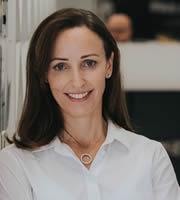 Leanne Loch is the Director at Back on Track and an Occupational Health Physiotherapist & Ergonomist with over 20 years’ experience. After a number of years working as a physiotherapist in private practice and hospitals and observing the effects of workplace injury, Leanne developed an interest in occupational health and completed postgraduate studies in OH&S and ergonomics. Since then Leanne has worked extensively in occupational rehabilitation with insurers, employers and workers to support safe and sustainable RTW after injury and illness. Leanne and her team have led employer and industry-wide initiatives to prevent musculoskeletal disorders in high risk work environments and have been at the forefront of championing work design principles since the early 2000s.
Leanne Loch is the Director at Back on Track and an Occupational Health Physiotherapist & Ergonomist with over 20 years’ experience. After a number of years working as a physiotherapist in private practice and hospitals and observing the effects of workplace injury, Leanne developed an interest in occupational health and completed postgraduate studies in OH&S and ergonomics. Since then Leanne has worked extensively in occupational rehabilitation with insurers, employers and workers to support safe and sustainable RTW after injury and illness. Leanne and her team have led employer and industry-wide initiatives to prevent musculoskeletal disorders in high risk work environments and have been at the forefront of championing work design principles since the early 2000s.
Good work design addresses the physical, biomechanical, cognitive and psychosocial characteristics of work as well as the capabilities of the workers themselves. Thankfully the concept of safe and healthy work has, over recent decades, broadened to include the psychosocial work environment. It is well established that musculoskeletal disorders are caused not only by exposure to manual task risk factors but are also associated with psychosocial risk exposures, and so it is critical that good work design principles are incorporated into prevention programs and in workplace rehabilitation. In this session we will explore case examples and initiatives that have successfully utilised good work design to reduce MSDs and to support safe and sustainable return to work.
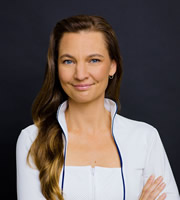 As AITD’s L&D professional of the year and Gold Stevie Award winner for Female Entrepreneur of the year, 2021, Anneli’s passion for decoding people and performance dynamics make her a sought-after speaker, mentor and leadership expert. She makes the complex job of understanding why people do what they do (and how to get the best out of them), both accessible and entertaining. As a Professional People Whisperer, Anneli specialises in interpersonal intelligence - the ability to understand and navigate the people dynamics in a given situation, and works with leaders to increase their influence, engagement and interpersonal impact for better business results.
As AITD’s L&D professional of the year and Gold Stevie Award winner for Female Entrepreneur of the year, 2021, Anneli’s passion for decoding people and performance dynamics make her a sought-after speaker, mentor and leadership expert. She makes the complex job of understanding why people do what they do (and how to get the best out of them), both accessible and entertaining. As a Professional People Whisperer, Anneli specialises in interpersonal intelligence - the ability to understand and navigate the people dynamics in a given situation, and works with leaders to increase their influence, engagement and interpersonal impact for better business results.
As leaders, managers and collaborators in the workplace, we need to have difficult conversations, whether we like it or not. From sharing uncomfortable, unpopular or sensitive messages, to dealing with difficult behaviours or personal issues, our ability to lean into hard conversations ultimately affects our leadership impact.
In this session, Anneli will explore how to stop avoiding the hard conversations, and reveal how to turn difficult, awkward and uncomfortable conversations into meaningful, measured and impactful exchanges.
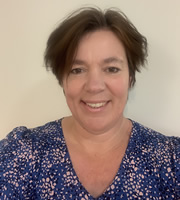 Dr. Lisette Kanse is a Senior Lecturer in the School of Psychological Science at the University of Western Australia (UWA) and the Course Coordinator of UWA’s Master of and Graduate Certificate in Business Psychology. She has worked as an academic and as a consultant/practitioner in a variety of industrial settings across Europe and Australia, including chemical industry, oil and gas, mining, rail transport, and healthcare settings. She uses her dual background in industrial engineering and organisational psychology to identify and facilitate evidence-based workplace improvements, and to warn against ineffective strategies. Her research interests include human factors, work design characteristics, procedures, norms, culture, and leadership, and how these impact on work practice and safety and health. Lisette is one of the co-authors of the OHS Body of Knowledge chapter on Work Design.
Dr. Lisette Kanse is a Senior Lecturer in the School of Psychological Science at the University of Western Australia (UWA) and the Course Coordinator of UWA’s Master of and Graduate Certificate in Business Psychology. She has worked as an academic and as a consultant/practitioner in a variety of industrial settings across Europe and Australia, including chemical industry, oil and gas, mining, rail transport, and healthcare settings. She uses her dual background in industrial engineering and organisational psychology to identify and facilitate evidence-based workplace improvements, and to warn against ineffective strategies. Her research interests include human factors, work design characteristics, procedures, norms, culture, and leadership, and how these impact on work practice and safety and health. Lisette is one of the co-authors of the OHS Body of Knowledge chapter on Work Design.
This presentation will provide a brief introduction to key work design research and theory, before turning the attention to the practical lessons that can be drawn from the science on this topic. Factors and stakeholders that play a role in work design will be addressed, with a particular emphasis on the role work health and safety professionals can play in work design improvements. Both top-down, management-led approaches and bottom-up, worker-led work (re-)design approaches (i.e., job crafting) will be covered, and suggestions will be given for tools, techniques and resources to use in supporting work design improvements.
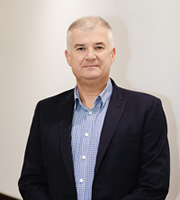 Simon has been a registered psychologist for over 40 years working with clients in complex environments, including law enforcement, judicial systems, regulatory bodies, superannuation, banking and manufacturing. He has worked with various Federal and State Government bodies and has extensive experience in delivering occupational violence and aggression training, conducting peer support and leadership development sessions and providing strategic wellbeing recommendations. After selling his Mental Health business to APM in 2022 he joined Australia Post as their inaugural Chief Mental Health Officer. As a member of the Australia Post leadership team, Simon is responsible for the mental health strategy and its effective implementation.
Simon has been a registered psychologist for over 40 years working with clients in complex environments, including law enforcement, judicial systems, regulatory bodies, superannuation, banking and manufacturing. He has worked with various Federal and State Government bodies and has extensive experience in delivering occupational violence and aggression training, conducting peer support and leadership development sessions and providing strategic wellbeing recommendations. After selling his Mental Health business to APM in 2022 he joined Australia Post as their inaugural Chief Mental Health Officer. As a member of the Australia Post leadership team, Simon is responsible for the mental health strategy and its effective implementation.
Simon’s presentation will focus on the implementation of an effective mental health strategy in larger and/or complex organisations. Drawing on the Australia Post case study, Simon will also discuss the critical success factors to implement scalable and relevant mental health programs. He will also help to balance out the competing and at times distracting forces that are currently influencing the community while not only fulfilling our obligations, but hopefully providing a culture to help our people thrive.
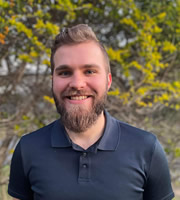 Matthew is an Accredited Exercise Physiologist (AEP) with post-graduate training in Mental health and Psychotherapy. Matthew views physical and mental health as highly interconnected and interdependent of each other. He practices as a senior AEP across private and public mental health community settings and has extensive experience working with people experiencing complex mental illness and those who have experienced physical and/or psychological injuries related to their occupation. In combination in expanding his clinical skills, he is also focused on improving his understanding and implementation of the shared relational common factors in which influence a person’s therapeutic outcome across healthcare interactions.
Matthew is an Accredited Exercise Physiologist (AEP) with post-graduate training in Mental health and Psychotherapy. Matthew views physical and mental health as highly interconnected and interdependent of each other. He practices as a senior AEP across private and public mental health community settings and has extensive experience working with people experiencing complex mental illness and those who have experienced physical and/or psychological injuries related to their occupation. In combination in expanding his clinical skills, he is also focused on improving his understanding and implementation of the shared relational common factors in which influence a person’s therapeutic outcome across healthcare interactions.
People who have a psychological injury are particularly vulnerable to adverse experiences during their injury management journey which can negatively impact their recovery and potential return to work.
There are many factors that contribute to a person’s adverse experiences and as their case manager how do we manage these or potentially prevent adverse experiences from occurring during their recovery journey?
Taking from the research about the influence of the role and influence of the therapeutic alliance on reducing potential harms experienced during therapy for those with a mental illness, the working alliance provides a framework for understanding the relational factors between a person and their case manager which can positively or negatively affect their recovery.
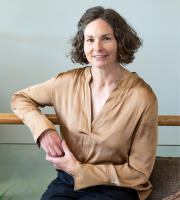 Natalee Johnston has 24 years of military experience as a qualified helicopter instructor, operations and safety leader. Natalee is passionate about safety and how an organisation’s culture and resilience can positively contribute to the welfare of all employees, their families and the community as a whole. Natalee has been part of the Royal Australian Navy's and the wider defence forces' cultural transition from an operational and a personnel perspective. As the first female naval helicopter pilot she understands the challenges of trying to break into an established organisational culture. Being part of a minority for her entire career, she has a personal insight into how people change to fit in and the difficulties in trying to break this evolution.
Natalee Johnston has 24 years of military experience as a qualified helicopter instructor, operations and safety leader. Natalee is passionate about safety and how an organisation’s culture and resilience can positively contribute to the welfare of all employees, their families and the community as a whole. Natalee has been part of the Royal Australian Navy's and the wider defence forces' cultural transition from an operational and a personnel perspective. As the first female naval helicopter pilot she understands the challenges of trying to break into an established organisational culture. Being part of a minority for her entire career, she has a personal insight into how people change to fit in and the difficulties in trying to break this evolution.
Natalee shares her knowledge, experiences and lessons learnt during her time as a military helicopter pilot and a few lessons from home. She will share with you her story and experiences of when safety is working and when it isn't. Natalee will demonstrate the the importance and benefits of Understanding WHY. Describing not only why accidents happen but the criticality of understanding the human factor; why we behave and make decision the way we do. Natalee will show how the influences and interactions with the world around us impact, limit or enhance our performance, both physically and mentally. Natalee is passionate about sharing her knowledge of human factors and the power organisational and safety culture has on the individual and the workplace. She will challenge the audience to ask "what is my organisation's culture, do we understand why?"
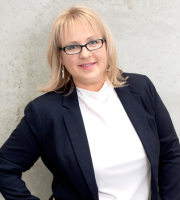 Naomi is the Chair of the AIHS Board and is a national spokesperson and advocate for the AIHS, the profession and health and safety in Australian workplaces. In this voluntary role, Naomi is vocal in supporting our vision of safe and healthy people in productive workplaces and communities. She is a Certified OHS Professional and is proud to have been a member of the Institute for over 10 years. Naomi is also an Expert Member of the WHS Board for the Queensland Government, Office of Industrial Relations. In her day job, she is a Capability Coach helping to build capability in businesses who truly care for the health, safety and wellbeing of their people and their community. Naomi has worked in safety and health since 2003 and her mantra is to help leaders who want to transform their approach to managing risks and make a difference — to cut through the bureaucracy, increase worker engagement, shape culture, and facilitate change that resonates through every level.
Naomi is the Chair of the AIHS Board and is a national spokesperson and advocate for the AIHS, the profession and health and safety in Australian workplaces. In this voluntary role, Naomi is vocal in supporting our vision of safe and healthy people in productive workplaces and communities. She is a Certified OHS Professional and is proud to have been a member of the Institute for over 10 years. Naomi is also an Expert Member of the WHS Board for the Queensland Government, Office of Industrial Relations. In her day job, she is a Capability Coach helping to build capability in businesses who truly care for the health, safety and wellbeing of their people and their community. Naomi has worked in safety and health since 2003 and her mantra is to help leaders who want to transform their approach to managing risks and make a difference — to cut through the bureaucracy, increase worker engagement, shape culture, and facilitate change that resonates through every level.
Powerful generational, cultural, and economic forces are colliding to create a perfect storm that will make the next 5-20 years some of the toughest ever faced by industry. Companies who don't adapt face a slow decline into obscurity as they are replaced by newer, more innovative, less bureaucratically challenged, less change resistant competitors. Antiquated health and safety management models and systems cannot survive in an increasingly challenging and ever-changing operating work environment. While the COVID-19 crisis has brought immense tragedy to many, it has provided a renewed urgency for companies to innovate and evolve how they manage health and safety. It has been the catalyst for the implementation of long-overdue change. Where for some companies who adapted while in crisis-mode, they have been strengthened and are seeking to capitalise on the opportunity to accelerate their momentum and create long term positive outcomes. At either juncture, you’re in a pivotal position in time. The time to build safety capability within and move the safety culture forward. Naomi is here to help you do that.
Dr Sara Pazell BAppSci(OT), MBA, PhD, CPE is the managing director and principal work design strategist for a human factors and ergonomics consultancy practice, ViVA Health at Work. She is affiliated with five Australian universities, including an Industry Fellow position within the Sustainable Minerals Institute at The University of Queensland. Sara’s research areas focus on the business architecture of good work design across many diverse industries. Sara is a Certified Professional Ergonomist, an advisory panellist for Australia’s only certified WellnessWiseTM Practitioner training program, and part of the international advisory committee for the WELL Movement concept, International Well Building InstituteTM. Sara is a series co-editor for the Workplace Insights books by Taylor & Francis and a book co-editor of two books in the series: Ergonomic Insights and the Healthcare Insights book (manuscript recently submitted, in publication now).
A manual task risk management program is a central part of good work design. These programs can reduce risks of musculoskeletal and psychosocial disorders to protect workers. These approaches, if communicated well, can meet other sustainable business objectives that include worker health, wellbeing, inclusivity, productivity, and efficiency.
Sara will use narrative storytelling to explain the work realities of three fictional but relatable characters from different industry segments. Their experiences will inform the recommendations to manage their risks of musculoskeletal disorders that impact on other hazard exposures, business objectives, and values. You will learn the 3M’s: the Meaning of the worker experiences, how to interpret the findings so that work can be Manageable, and an action plan to design better Manual tasks.
Marion Burgess has been working in the area of workplace noise for many decades. This has included measurements of worker noise exposure and research into noise control measures. She has been involved with many education programs ranging from tool box talks to workers, training for those undertaking noise assessments through to professional occupation hygienists.
In this presentation Marion will discuss the effects of high noise exposure and why it is essential to manage and protect workers from excessive noise. As noise induced hearing loss is a preventable injury, she will also outline the advances in noise control measures that can be implemented in workplaces.
Jahin Tanvir is the CEO of the Australian School of Entrepreneurship, award-winning keynote and three-time TEDx speaker. Jahin was named as a 40 under 40 Most Influential Asian-Australians in 2022, at the age of 21-years-old.
Jahin will delve into how employers can better engage young people and ensure their wellbeing and health is at the forefront of discussions. Particularly with mental health being a substantial issue for young people, this high energy and interactive presentation will explore 5 ways in which workplaces can adapt and manage for young employees and create a safe and sustainable working culture.
Andrea Fox
Andrea's career has spanned the public sector in Queensland, as well as working for a non-government organisation and teaching in the university sector. Andrea is genuinely committed to the principles of collaborative policy design, knowing that enduring and effective policy solutions are only devised when crafted with those effected by them. She has policy making experience working with a diverse range of industries including work health and safety, industrial relations, vocational training, transport, energy, natural resources and child protection reform.
Since 2017, Andrea has focused on work health and safety. She is the Queensland member of the Strategic Issues Group of Safe Work Australia, where she contributes to the national development of work health and safety policy. Andrea has also chaired a number of tripartite steering groups for collaborative policy development and regulation setting across construction, agriculture and psychosocial hazards.
The year of 2024 in work health and safety is going to be The Year of Health and Safety Representatives (HSRs). Learn more about this powerful role in the workplace and how to get the best out of it for both workers and employers. This presentation will also cover the legislative changes that are coming in Queensland and how the Regulator works with Health and Safety Representatives, as well as dispelling some common misconceptions about HSRs.
Johanna Sutherland
Johanna's career has focused on the effective use of regulatory interventions to uplift safety outcomes for workers in Queensland.
Johanna is passionate about collaborating effectively to identify and develop forward thinking regulatory programs that balance standard setting and targeted compliance initiatives. She has broad experience driving enhancements in a diverse range of regulatory interventions including the provision of advisory, compliance and specialist technical services and initiatives that are relevant to the regulation and support of health and safety representatives (HSRs). Johanna is involved with a number of national working groups that focus on policy reform in relation to HSRs, licensing and psychosocial hazards.
Kylie Muscat
Kylie Muscat, is the State-Wide Health and Safety Coordinator, supporting Health and Safety Representative’s across Queensland. Prior to this Kylie worked with United Workers Union as an Organiser covering a vast number of industries with a focus on Enterprise Bargaining. Health and Safety is important to Kylie, she first became actively involved in workplace health and safety during her nearly 10 years as a Correctional Officer at a maximum-security male prison.
Dr Gregory Zelic kicked off his professional journey as an Academic: teaching, mentoring and exploring the edges of behavioural neurosciences for 10+ years. He joined the public sector few years ago, determined to commit his skills and efforts towards improving lives.
Today Gregory is a proud public servant and team leader at the Centre for WHS, where he is directly responsible for the Research and Development program, and the Data Science program.
Diving into the focuses of the Centre for Work Health and Safety, Dr Zelic spoke to our view for addressing the future of work, including:
- staying ahead of the game through rigorous evidence collection of current and emerging trends
- reassessing and preparing for the future of regulation by understanding how we can keep up with rapidly changing worlds of work
- embracing opportunities into the future, including new ways of working and technologies that will allow us to progress in ways that we have never been able to.
A/Prof Carlo Caponecchia is an academic at the University of New South Wales in Sydney, Australia. He has a background in psychology and works in human factors and safety. He has particular interest and expertise in psychosocial risks and safe systems of work. Carlo is a member of the Standards Australia committee on occupational health and safety management and was part of the ISO TC283 working group responsible for the development of ISO45003. He is the current President of the International Association on Workplace Bullying and Harassment.
In this talk we’ll explore elements of work design, how it fits within work health and safety practice, and why it should be the primary strategy for organisations to use when improving mental health at work. The talk will outline examples of how work can be re-designed, as well as reporting on a tool that was developed to increase confidence and skills in work re-design for managing psychosocial risks.
Glen 'Cookie' Cook is an internationally acclaimed powerline safety specialist and speaker. Cookie's is a very passionate advocate for workers and has received multiple awards for his dedication, including the Australian Health and Safety professional of the year (2020) Queensland Community Achievement Safety Award in 2021 and most recently recognised internationally at the Global Excavation conference in USA as the 2022 Damage Prevention Hero of the Year.